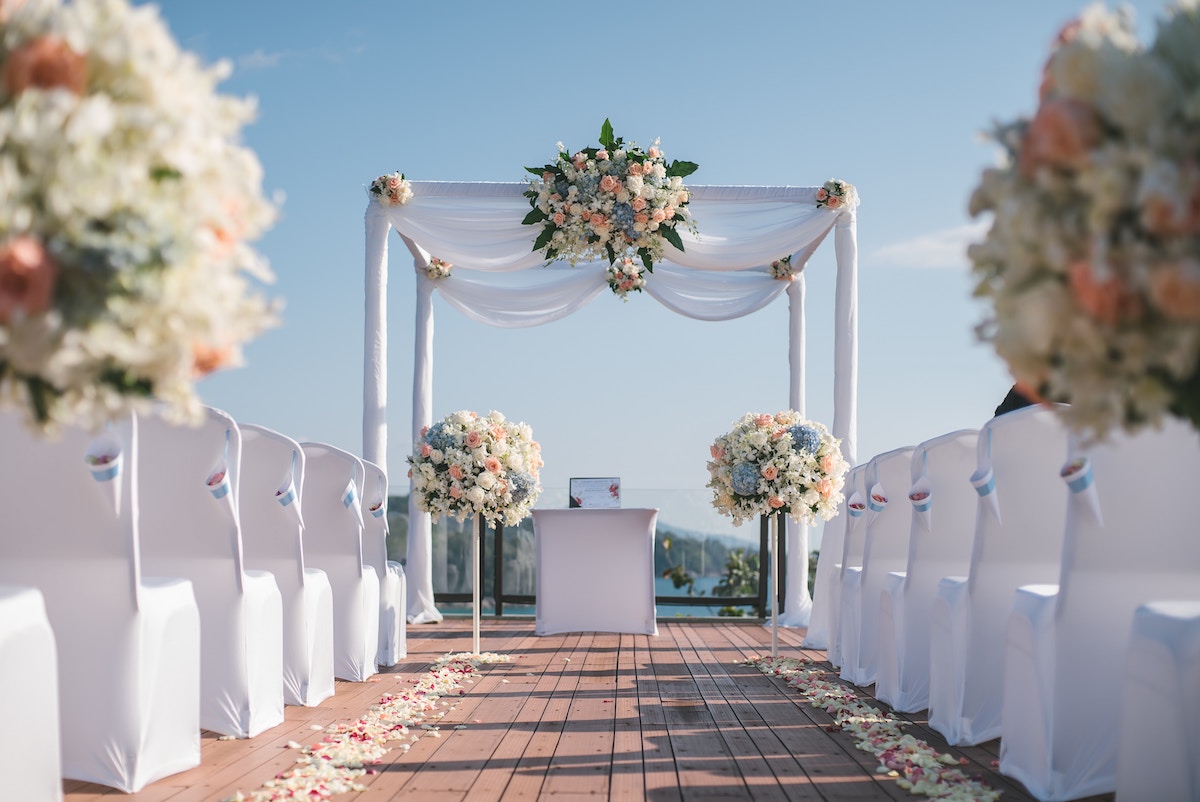
The media buzz about Conservative rabbis and officiation at weddings of interfaith couples has slowed, but there has been important commentary in the past three weeks.
The rabbis of the Jewish Emergent Network – certainly among the most progressive younger rabbis in the country – expressed solidarity with Rabbi Amichai Lau-Lavie for raising important issues, expressing “hope that in the months ahead, the focus will shift from internal Jewish politics to the ways in which contemporary Jewish spiritual leadership, as it looks both to the past and the future, will respond to the increasingly fluid boundaries between the categories of Jew and non-Jew.”
The Pittsburg Jewish Chronicle had an excellent summary of the Conservative officiation debate in an article about varying opinions of local Conservative rabbis. One rabbi said the Rabbinical Assembly should only change its prohibition if there is an adequate halachic basis to do so; one said if the RA changed its stance he still wouldn’t officiate. The article reports that there is a petition being circulated to affirm the prohibition and that the RA has a Blue Ribbon Commission examining the boundaries of the prohibition – not overturning it, but defining what it means.
I was disturbed to read Steven Cohen quoted as criticizing the Cohen Center’s research showing a strong association between having a rabbi officiate and interfaith couples’ later joining synagogues and raising their children Jewish. Cohen apparently says the study provides no evidence of impact and just shows that people who seek a rabbi are more Jewishly engaged. I think the Cohen Center’s interpretation makes much more sense: “Interactions with Jewish clergy in preparation for the wedding may serve to welcome the non-Jewish partner into Judaism, establish the groundwork for a continuing relationship, and affirm the couple’s prior decision to raise a Jewish family. However, the opposite may also be true. Rejection by Jewish clergy may serve to dissuade couples from pursuing other Jewish commitments and connections.”
The article reports that Rabbi Alex Greenbaum, who said he would officiate for interfaith couples if the RA changed its prohibition, found a way to participate in a wedding without overtly violating it: while under the chuppah he delivered the “wedding talk,” while a Reform rabbi conducted the actual marriage ceremony. He said, “I believe that for rabbis who are congregational rabbis, after 12 to 15 years these children are like your own children…. And I have to say, ‘I’m so sorry I can’t perform your wedding.’ They never get over it.” He continued, and I think this makes a great deal of sense,
We are not going to have a better chance of a Jewish future if we reject our children. There is no chance then. The more welcoming we are, the better chance we have for a Jewish future. I do believe this is a matter of life and death for our movement. I believe intermarriage is not leading our kids away from Judaism. I believe it is our reaction to intermarriage that is pushing them away.
Rabbi Seymour Rosenbloom, who was expelled by the RA because he started to officiate for interfaith couples, says that the leadership of the Conservative movement is at odds with its members. “The Rabbinical Assembly and the Jewish Theological Seminary may adamantly reject the idea that Conservative rabbis should officiate at interfaith marriages; the Conservative constituency overwhelmingly believes they should.”
Intermarriage is one of the clearest manifestations of the consequences of the gap between rabbis and constituents, which I believe is at the core of the crisis in Conservative Judaism today. But the fundamental issue is that while leadership still perceives Conservative Judaism as a halachic movement, its constituents do not. For them, Judaism is not about law. It is a matter of the heart and spirit. It is about intent, feeling, and identity. And when it comes to intermarriage, it is about love. It is not about adherence to technical standards that are arcane and burdensome, that lack transparency, and make life harder and more difficult. Like most non-Orthodox Jews, members of Conservative synagogues are seeking religious communities that enable them to celebrate the milestones of their life with joy and meaning, and which help them shoulder the burdens of a challenging society with greater confidence and purpose.
But where they seek peace, Conservative Judaism offers Halacha. Where they yearn for fulfillment, they are given the message that they are Jewishly inauthentic. Where they crave acceptance, they are judged.
The New Jersey Jewish News had an interesting essay by Conservative Rabbi Judith Hauptmann, who teaches Talmud at the Jewish Theological Seminary, and has a grandchild growing up in an interfaith home. She says that as of now, she won’t officiate for interfaith couples, “but I wish I could.” (The essay is about what she says is the more important question of how to get the children of intermarriage to grow up Jewish, and about the key role that grandparents can play.)
Finally, there was a great article interviewing Rabbi Keara Stein, director of InterfaithFamily/Los Angeles, who outlined six tips to make both sides feel comfortable while respecting their traditions. She explains she made the difficult decision to co-officiate because “there have been couples who would not have had any other Jewish elements at their special day if I had decided against it.”

Leave a Reply